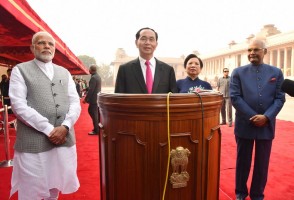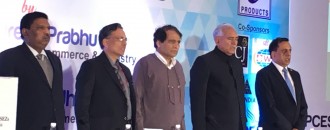
Indian exporters concerned over talks on lifting sanctions on Iran
Himanshu Vatsa | The Dollar Business
As the US and other developed countries are mulling over lifting trade restrictions on Iran, Indian exporters say the move will have diversified impact on the existing bilateral economic ties. Since 2002, Iran has been facing sanctions imposed by the United Nations (UN), European Union (EU) and several individual countries to prevent the Islamic republic from developing military nuclear capability. Now, the UN Security Council members (the US, UK, France, Russia, China), also known as P5, plus Germany are holding discussions in Vienna to reach an agreement on Iran’s nuclear programme and removal of trade restrictions on the country in a phased manner. Experts say that Iran and P5+1 group are likely to finalise a deal soon. Since India had opposed sanctions, many Indian traders are already engaged in various trades with Iran. “Once the sanction is removed, the market will be open for all. At present, not many traders go to Iran fearing problem in remittance. But there is a huge scope for India in Iran. It will have some negative consequences as well. Once, Iran starts trading in crude oil, the prices will go down further and it could catalyze the recession already prevailing in the global market. It will not be a win-win situation,” said S C Ralhan, President of the Federation of Indian Export Organisations (FIEO). He said even though the opening of Iranian market will be a challenge for Indians, the credibility of Indian products will have an edge against competitors. “Of course, there will be intense competition. But there is a great demand of India made hand tools, diesel engines and other engineering products in Iran. Although China is also supplying these products but we are much ahead in this segment,” Ralhan told The Dollar Business. In the global commodity market, India is already facing a tough competition due to steep fall in the prices of a majority of agricultural products. “Iran has already stopped buying soya oil from India because they are getting it from Argentina and other South American countries at cheaper rates,” B V Mehta, Executive Director of Solvent Extractors' Association of India, told The Dollar Business. The world market is over supplied with soya oil mills, triggering a sharp fall in the price. According to Mehta, Indian soya oil costs around $550 a tonne in the global market against $400 a tonne sold by exporters from South American countries.
July 9, 2015 | 5:30 pm IST.





 to success.
to success.